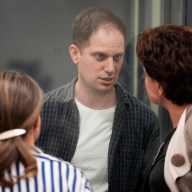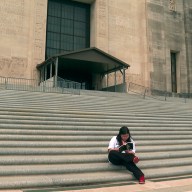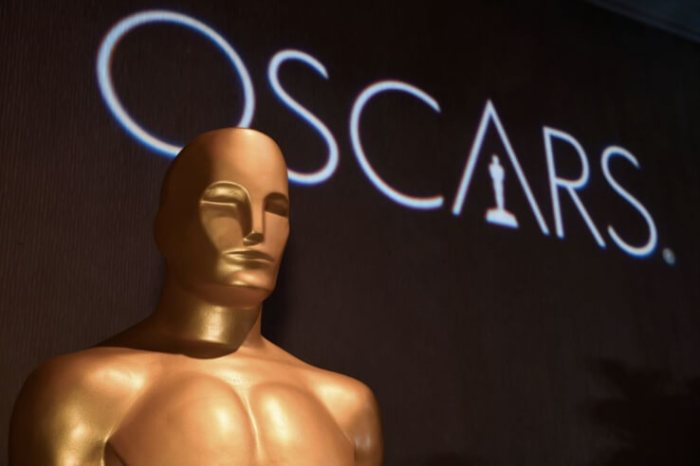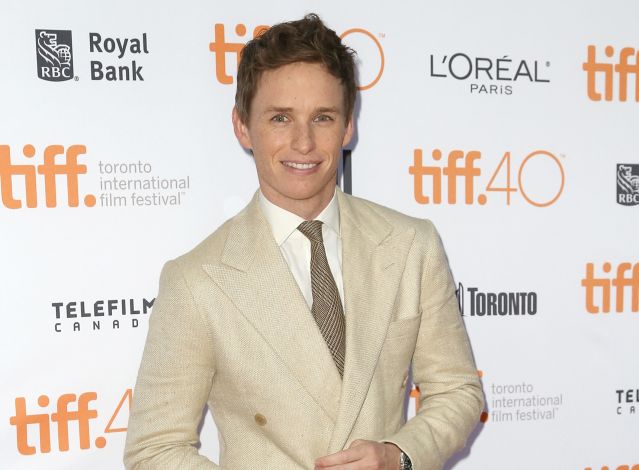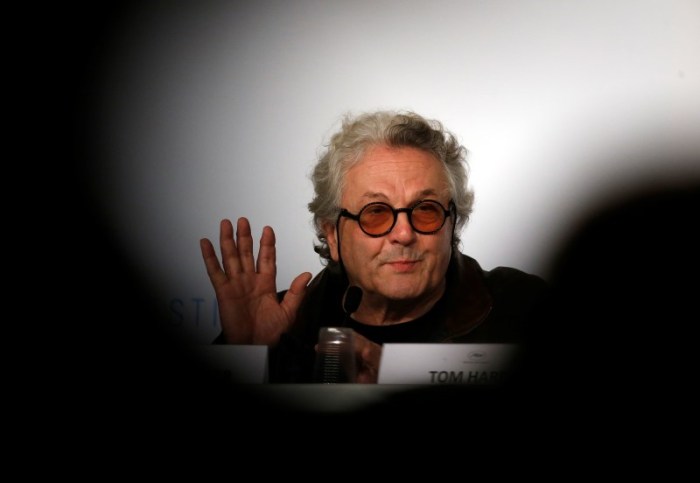The 87th Academy Awards began with a more or less complete lack of confidence in how some of its major categories — notably Best Picture — would turn out. And then it wound up going to “Birdman,” a stunt-heavy dramedy about the trials and tribulations of a fallen film actor. Said actor — Michael Keaton, playing a Michael Keaton-esque former comic book movie star — did not, as it were, win Best Actor, which would have been the real Oscars story. Instead it went to Eddie Redmayne for playing Stephen Hawking in “The Theory of Everything,” and who went on to deliver an alternately touched and goofy acceptance speech nearly as entertaining as his madly OTT turn in “Jupiter Ascending.” Not that many of you have any idea what I’m talking about. But while the film also took home the trophies for director (Alejandro Gonzalez Inarritu), screenplay and cinematography (Emmanuel “Chivo” Lubezki), the awards were for the most part spread out among just about everyone. “Boyhood” was, like many of the ceremony’s big films, once a sure thing for the top award. It wound up with one, for Patricia Arquette, who spent 12 years on the film. She was one of the no-brainer locks who in fact won, including “Citizenfour” for documentary, J.K. Simmons for “Whiplash” and, the year’s surest bet, Julianne Moore for “Still Alice.” But to the question all of you most wanted to know: Did the Production Design trophy go to “The Grand Budapest Hotel”? (OK, some of us were worried it wouldn’t.) It did, deservedly, as did, also deservedly, the awards for costumes, musical score and make-up and hairstyling, for a film that successfully turned the ageless Tilda Swinton into a 90-something prune. In fact, it’s pretty odd that a filmmaker as OCD as Wes Anderson has not Hoover up technical awards aplenty before. Anderson’s deceptively frothy portrait of death and destruction leading up to World War II did not wreak one of the night’s many politically-themed acceptance speeches. But this wasn’t your parents’ Oscar ceremony, which is to say the type in which Vanessa Redgrave talks smack about “Zionist thugs” (though she did not, despite the myth, actually mean Israel). They were impassioned and right on, speaking truth to power in the best way. John Legend used his and Common’s win for best song for “Selma” — the film’s only win, of its, whoops, two nominations — to speak about the high number of African-Americans incarcerated in prisons. On a slightly lighter note, Simmons spoke earnestly — and from an apparent very personal place — about calling your parents, and not just texting them. Graham Moore, who won for adapted screenplay for “The Imitation Game,” dug into his past as a depressed youth, pleading for people to stay “weird.” Arquette gave arguably the most rousing speech. The actress got mocked by some for not sculpting her hair, but her messy ‘do seemed like a political statement, as though demanding vapid journos pay attention not to her looks but to her work. She spent her speech preaching for equal rights for women, in a year when it was revealed certain actresses are paid less than their male counterparts. At these times, the Oscars briefly felt less like a catastrophe. But then John Travolta was allowed to apologize, incredibly, insanely creepily, to Idina Menzel for saying random noises instead of her name, and things went back to normal. In fact, it was a rickety show, with few of the highs actually provided by its host. How much of a mess are the Academy Awards? Not even NPH — the obvious go-to guy who kills at the Tonys and Emmys — could conquer them. He was to be the second safe choice in a row, after last year’s Ellen DeGeneres show. Sometimes the Oscars think outside the box and pay the price: Seth MacFarlane singing about boobs in 2013; the dynamic duo of a dazed, noncommittal James Franco and an energy-pill-high Anne Hathaway in 2011. It all started well. Neil Patrick Harris ascended from the floor onto the stage of Los Angeles’ Dolby Theatre for his first Oscars gig and immediately addressed the biggest elephant in the room. “Tonight we celebrate the best and whitest — sorry, best and brightest,” he quipped, winkingly referring to the heavy snubbing that befell “Selma.” But this was a false start. Savage quips were immediately — as in the next sentence — replaced by singing. Harris launched into one of those songs that Billy Crystal used to do — except only about a third of it was dedicated to jokes. Singing about “moving pictures” — it’s 1895 all over again! — he offered a sloppy valentine to the medium he’s shilling for at this awards show, at least. Harris inserted himself into movies, most of them old — say, blocking Sharon Stone’s business from “Basic Instinct” — but also the night’s only feted musical, “Into the Woods.” Speaking of which, he was soon joined by Anna Kendrick, as well as Jack Black, who channeled his inner Tenacious D to offer the position that maybe movies are crap and this whole thing is a corrupt love-in. The Oscars do this every now and then: addressing that maybe the ceremony — and maybe even movies themselves — are irrelevant. And as usual, it had no real answers — just a flashy song-and-dance number performed by one of entertainment’s brightest lights. Harris couldn’t really make the Oscars his own. Not only was there a lack of stunts a la DeGeneres’ group selfie — a thing about a chest with predictions was stillborn and had a payoff so anticlimactic one actively felt bad for him — but the tone of the show was all over the place, drunkenly staggering between token Oscar pomp and questionable jokes. Jokes about Octavia Spencer don’t go well with her presenting something on “Selma,” and cracking a joke about Edward Snowdon (“He couldn’t be here for some treason”) right after the documentary on him, “Citizenfour,” won its Oscar was at least disrespectful. Occasionally Harris got his groove back. Later he joked about “Selma” star David Oyelowo’s snubbing to David Oyelowo. (He also addressed the other biggest elephant in the room: He made light of the snubbing of “The Lego Movie.”) His best moment seemed genuinely impromptu, doing a song and dance following J.K. Simmons’ serious speech. Still, Harris has amassed enough good will that he’s allowed a fumble, even a pretty major one. And he wasn’t even the worst part. Why, early in the final hour, was there a montage from “Sound of Music,” followed by Lady Gaga singing songs from the 1965 film? If a tree falls in the woods and no one’s there to hear it, does it make a sound? The night’s most inexplicable segment was also one of life’s great mysteries. If only it hadn’t padded out an already epic length even further. On the flip side, one of the night’s most welcome diversions was supplied by director Pawel Pawlikowski, who, while accepting his award for Best Foreign Language Film for the oddly funny Holocaust-themed drama “Ida,” became one of the few winners to ever conquer the nosy, impatient orchestra, who were all set to drown him out far quicker than they would, say, a J.K. Simmons. He persisted, and not by acting like a jerk or anything, and they actually shut up, only coming back when he would let them. Good on ya.
The Oscars: Everyone’s a winner! (But ‘Birdman’ wins Picture)
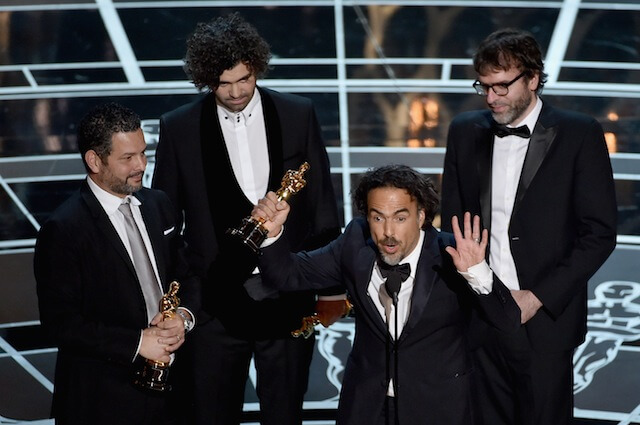
Getty Images
The complete list of winners:
Picture: “Birdman”
Actress: Julianne Moore, “Still Alice”
Actor: Eddie Redmayne, “The Theory of Everything”
Best Supporting Actress: Patricia Arquette, “Boyhood”
Best Supporting Actor: J.K. Simmons, “Whiplash”
Director:Alejandro Gonzalez Innaritu, “Birdman”
Original Screenplay: “Birdman”
Adapted Screenplay: “The Imitation Game”
Cinematography: Emmanuel Lubezki, “Birdman”
Editing: “Whiplash”
Costume Design: “The Grand Budapest Hotel”
Production Design: “The Grand Budapest Hotel”
Make-up and Hair Styling: “The Grand Budapest Hotel”
Visual Effects: “Interstellar”
Sound Mixing: “Whiplash”
Sound Editing: “American Sniper”
Song: “Glory,” from “Selma”
Score: “The Grand Budapest Hotel”
Documentary: “Citizenfour”
Foreign-Language Film: “Ida”
Animated Feature: “Big Hero 6”
Animated Short: “Feast”
Live Action Short: “The Phone Call”
Documentary Short: “Crisis Hotline: Veterans Press 1”
Follow Matt Prigge on Twitter @mattprigge







